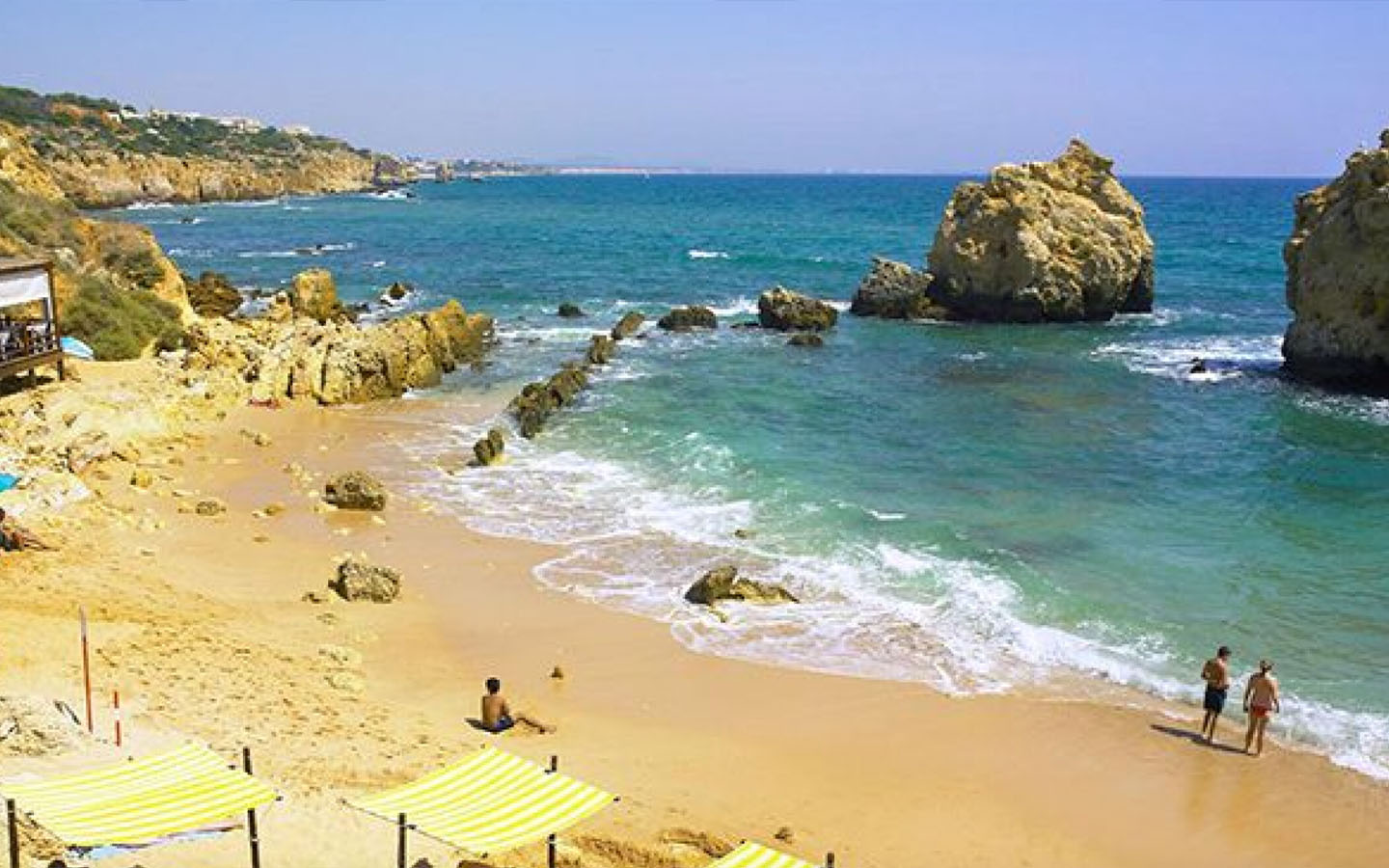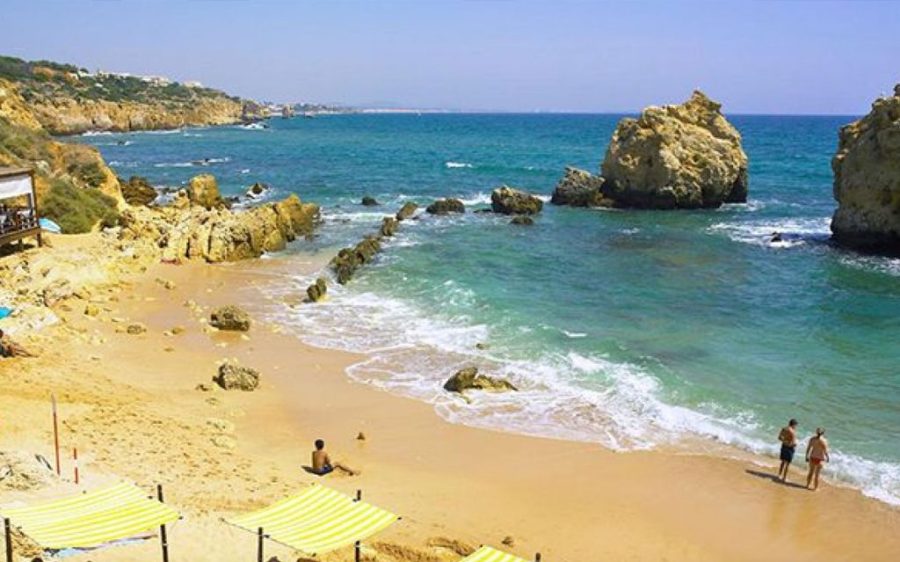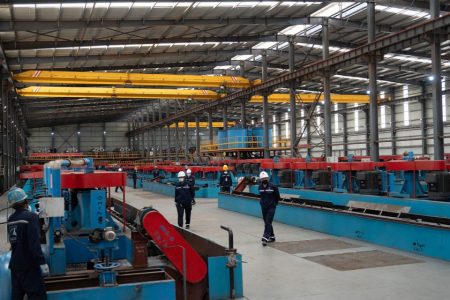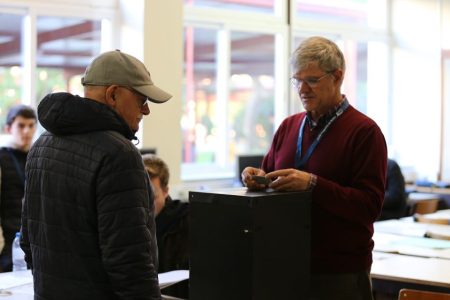Researchers are now studying 12 dinosaur footprints at Portugal’s Arrifes Beach, in the hope UNESCO will officially recognise the surrounding area as a Global Geopark, the Portugal News reports. The 120 million-year-old footprints belong to five individual dinosaurs from three different species, including a brontosaurus.
Located in a small cove on Portugal’s southernmost coastline, the Algarve, the Lower Cretaceous-era footprints are only accessible at low tide. Initially impressed into mud, they were then covered by limestone and sand – allowing the natural mould of the footprint to remain. Tectonic movements later twisted the rocks into their current, vertically-oriented position.
Some of the footprints were discovered by an unknown person in the mid-2010s, scientific advisor for the Algarvensis Geopark project, Octávio Mateus, told media. But the Universidade Nova de Lisboa palaeontologist believed that he himself discovered more of the collection – specifically footprints belonging to a herbivorous ornithopod – in June this year.
[See more: Torrential rains reveal a near-complete dinosaur skeleton in Brazil]
He described the beach, in the Loulé, Albufeira and Silves territory as a “geosite of global importance”. The footprints were arranged into trails, revealing that both small and large sauropods – including the highly recognisable long-necked brontosaurus – once roamed this area, along with other herbivores and carnivorous dinosaurs.
UNESCO Global Geoparks are “single, unified geographical areas where sites and landscapes of international geological significance are managed with a holistic concept of protection, education and sustainable development,” according to the organisation’s website. UNESCO recognition would be a major boon to the Loulé, Albufeira and Silves economy through attracting tourists to the territory – a major incentive for the recent scientific focus on its dinosaur footprints.
The president of the UNESCO Global Geoparks Council, Guy Martini, has said he was optimistic about the aspiring Algarvensis Geopark’s application and of its potential to “create a more egalitarian economy in the territory”.
However, Martini also noted that there was about 20 more years worth of work to do at the site before it could be ready for inclusion. He said the project’s objective should first be to develop a “population that can defend its values and its nature”.






